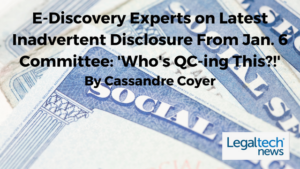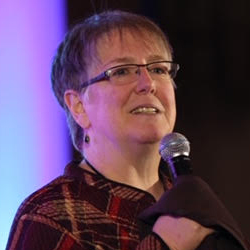For now, where the blame falls for the mistake of exposing thousands of Social Security numbers is unclear. But for e-discovery professionals, this blunder “goes to show that the roles and responsibilities really do need to be defined … because the impact is substantial.”
Analysis by Cassandre Coyer, Legaltech News

When the Jan. 6 committee released hundreds of records, including audio recordings and interview transcripts, online last week, it failed to redact nearly 2,000 Social Security numbers of high-profile individuals who visited the White House in December 2020 from a spreadsheet.
A former Jan. 6 committee aide told The Washington Post that committee “records released publicly underwent a review process to redact personal details and other sensitive information,” adding, “any release of such information was inadvertent.”
The release of the Social Security numbers comes only a few months after emails showing former President Donald Trump’s legal team discussing how Supreme Court Justice Clarence Thomas was their “only chance” to stop the certification of the 2020 election were, too, inadvertently made public.
“What is the process? Who’s doing this? Don’t they regularly have to make this information available? And if so, I can imagine they must have made mistakes on other days too, they’re human. And who’s quality-checking this?
Joy Murao, founder and CEO of Practice Aligned Resources
The latest mistake is a simple one, e-discovery professionals say, caused by a manual and disorganized process, but it still points to larger issues.
In fact, some noted that this latest incident hints at the shortcomings that arise when a lack of quality controls, defined roles and awareness of technology solutions are all mixed together.
While experts recognized that mistakes are bound to happen, they also said that, with such sensitive information, tighter processes should have been in place.
“What is the process? Who’s doing this? Don’t they regularly have to make this information available? And if so, I can imagine they must have made mistakes on other days too, they’re human,” said Joy Murao, founder and CEO of Practice Aligned Resources, a Los Angeles-based consulting practice. “And who’s quality-checking this?”
Read the entire analysis also quoting Kelly Twigger, principal at ESI Attorneys and Mary Mack, EDRM CEO here.


